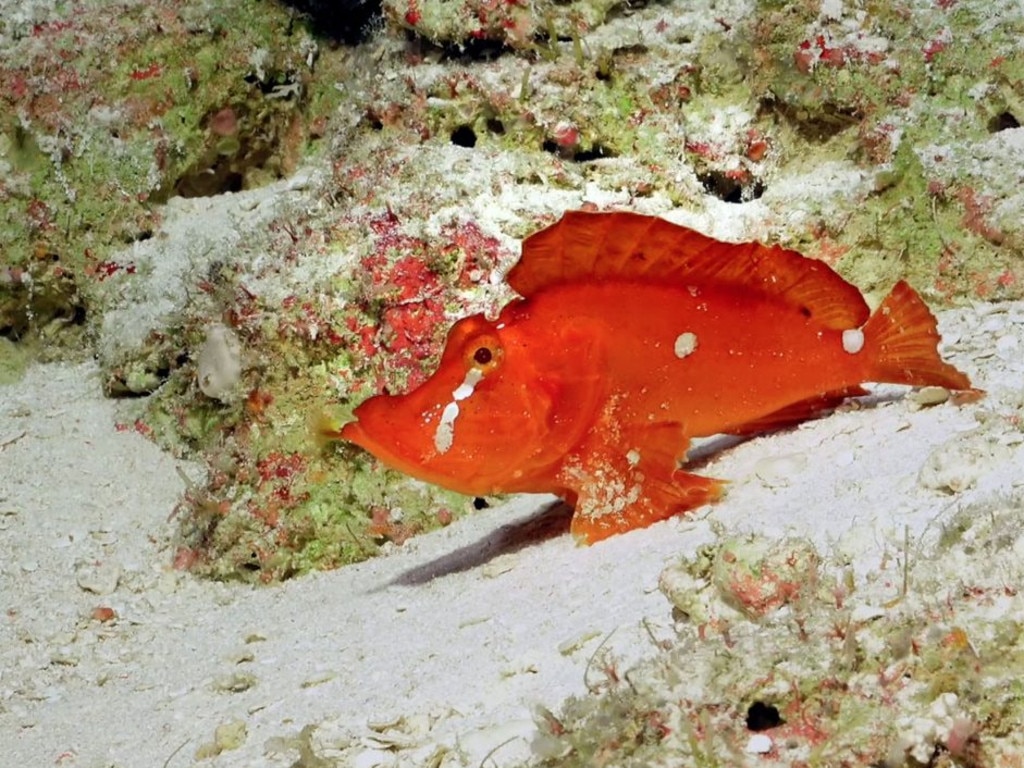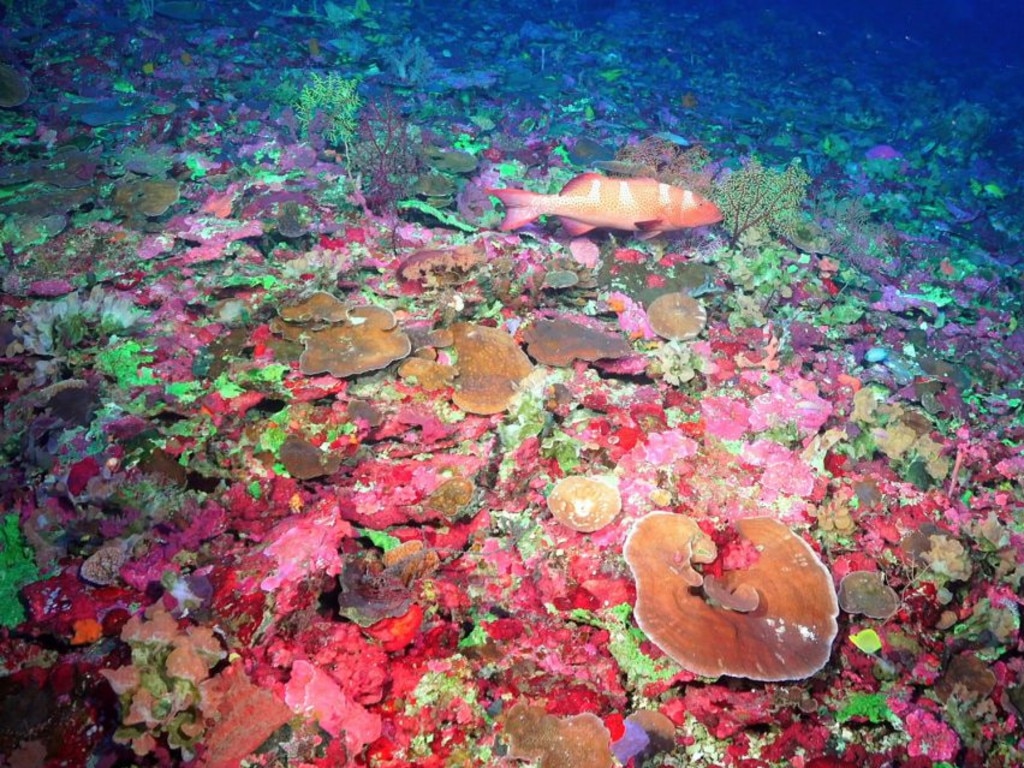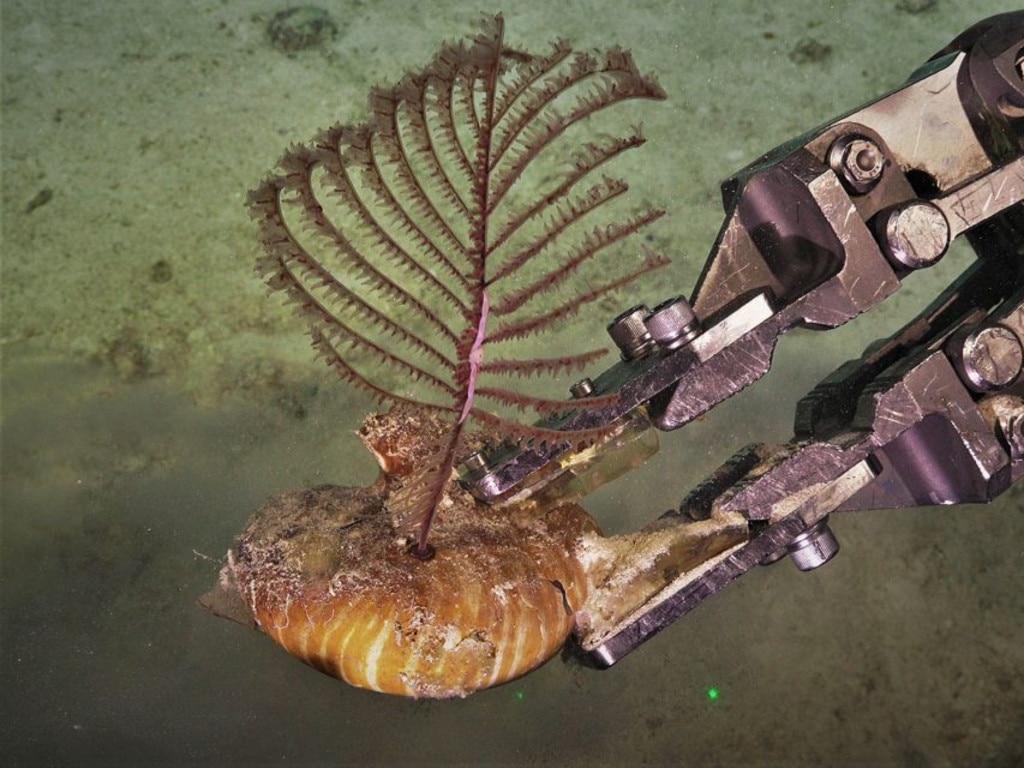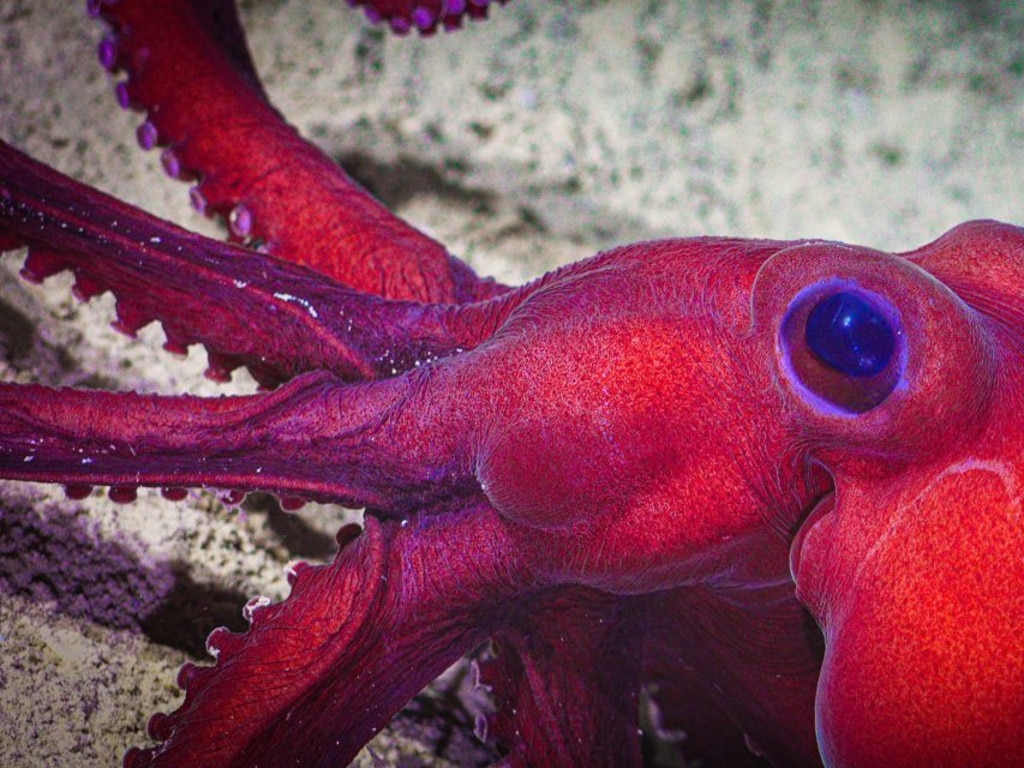Great Barrier Reef: Extremely rare ‘walking’ scorpion fish recorded in Australia for first time
Australia’s first observation of an extremely rare fish has been recorded in the Great Barrier Reef by scientists who also made other unique discoveries.
Scientists have made the first recorded observation in Australia of the extremely rare scorpion fish.
The colourful and well-camouflaged ambush predator was photographed on an expedition in the Great Barrier Reef.
The fish appears to “walk” along the sea floor using its pectoral fins, described as “an awkward, lumbering gait”.
Scientists say the fish has never been seen in Australia, the closest sighting being in Hawaii.
RELATED: Reef’s long-term outlook downgraded in grim report

RELATED: How Australia can address climate change
On the expedition to the deepest regions of the reef, scientists also discovered five undescribed species consisting of black corals and sponges.
The research was done aboard Schmidt Ocean Institute’s research vessel Falkor, on its fourth expedition of the year, as part of the Institute’s Australia campaign.
The team used a remotely operated underwater robot to view high-resolution video of the bottom of the ocean floor, some 1820m deep.
“This included the most comprehensive midwater robotic dive survey series to ever have been conducted in the South Pacific,” Dr. Brendan Brooke said, the expedition’s lead scientist from Geoscience Australia.
“Research vessel Falkor has integrated a range of technologies that have allowed us to work across the full range of ocean depths in the Coral Sea and to provide data for multiple disciplines including geology, biology, and oceanography.”

James Cook University‘s Robin Beaman said the expedition had provided scientists with a unique window into both the geological past and the present day conditions of the reef, allowing scientists and park managers to be able to see and tell the full story of the interconnected environments.
“This vision is invaluable for science, management, and education,” he said.
They collected the first sample of ancient bedrock beneath the Great Barrier Reef, estimated to be between 40 and 50 million years old.

The cruise also included the most comprehensive survey of midwater jellyfish in the South Pacific.
High-resolution mapping of the sea floor was conducted and covered 38,395 square kilometres, an area three times greater than Sydney.
Dr Beaman new the new species of black coral discovered were beautiful.
“They‘re not always black, they tend to be more red in colour,” he told the ABC.
“When they die, though, the skeleton remaining is this beautiful jet black colour, which people sometimes see as pieces of jewellery in different parts of the world.
“It is completely cold, it is completely black, there is no sunlight down there. They’re entirely reliant on whatever food is drifting past in the water column in order to survive.”





